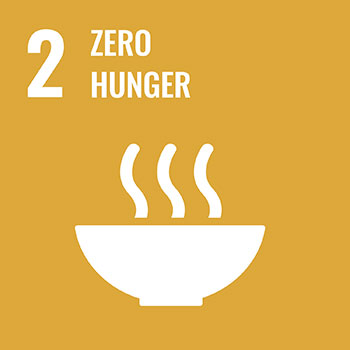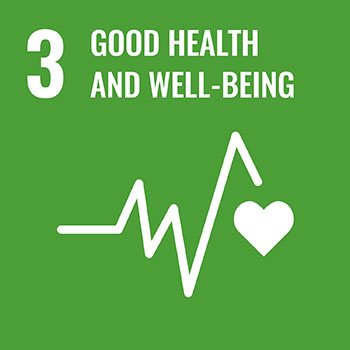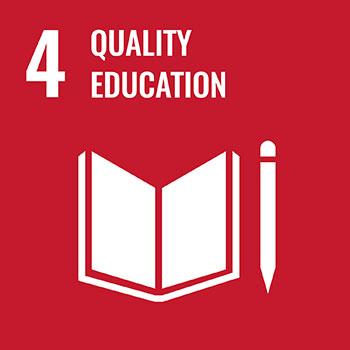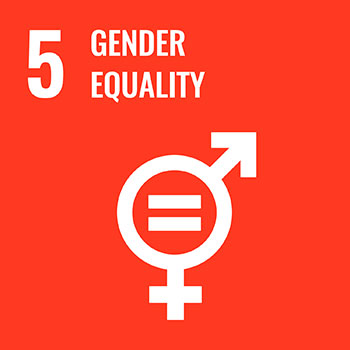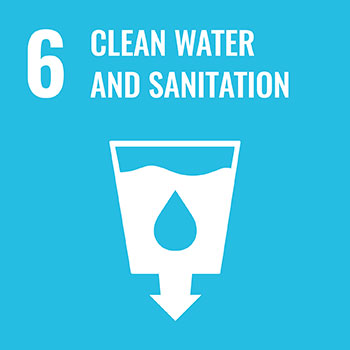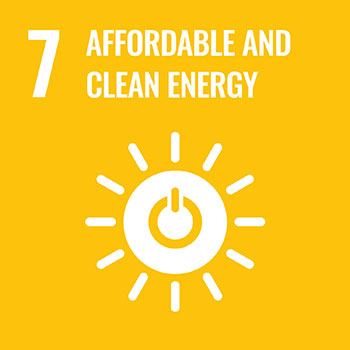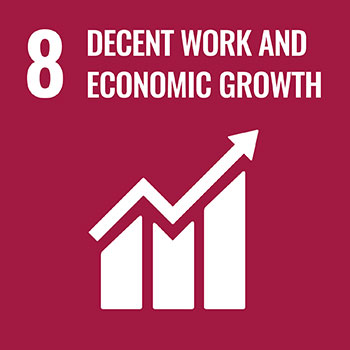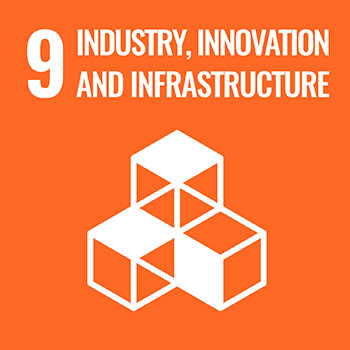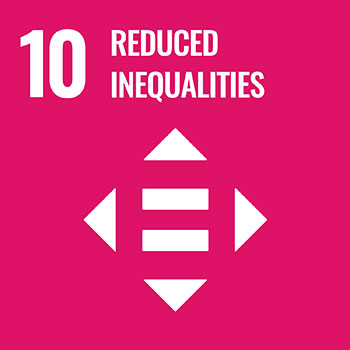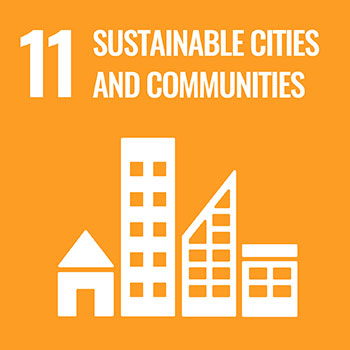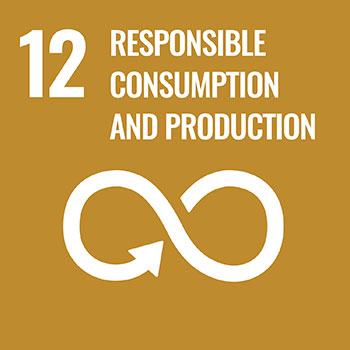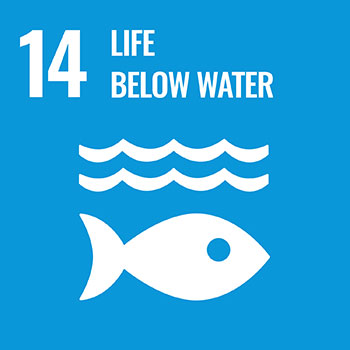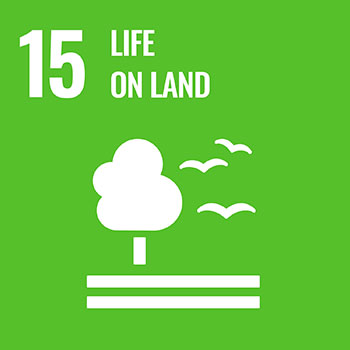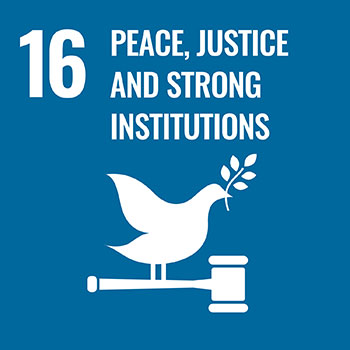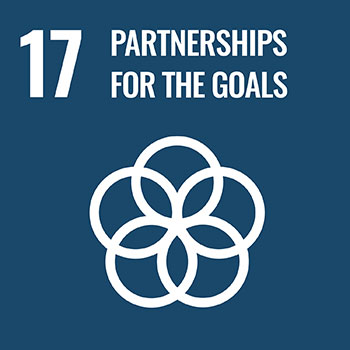Search for academic programs, residence, tours and events and more.
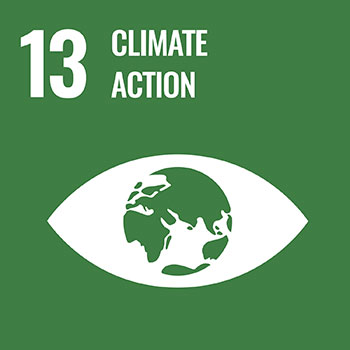
Take urgent action to combat climate change and its impacts.
Canada is among the most rapidly warming regions on Earth. Wilfrid Laurier University is embracing this complex challenge and working to be part of the solution. Through leading research and academic programs and operational practices, Laurier is demonstrating our strong commitment to SDG 13.
The work that Laurier completed in 2024 to advance SDG 13.
Wilfrid Laurier University won gold at the 2024 QS Reimagine Education Awards, chosen as the top submission from Canada and the U.S. across all 18 categories. Laurier was recognized for providing impactful experiential learning opportunities as part of its long-time research partnership with the Government of the Northwest Territories (GNWT), which sees students work alongside community partners to tackle the effects of climate change on northern ecosystems and well-being.
The Weston Family Foundation is honouring eight Wilfrid Laurier University graduate and postdoctoral researchers with 2024 Weston Family Awards in Northern Research. Weston Family Northern Scholars are encouraged to co-design their research with northern communities, with the goal of protecting and restoring biodiversity in Canada.
Wilfrid Laurier University and the City of Waterloo are working together to better understand how postsecondary students can contribute solutions to community issues in Waterloo. Through a full-time, paid summer internship at the City of Waterloo, Laurier student Xuan Nguyen investigated ways postsecondary students can embrace and incorporate environmentally sustainable practices into their lifestyles.
Wilfrid Laurier University’s Mark Terry has won the J. Robert Cox Award for Environmental Communication and Civic Engagement from the National Communication Association (NCA), awarded for outstanding research that significantly impacts global environmental justice.
Laurier research centres advancing SDG 13.
The Laurier Centre for Sustainable Food Systems (LCSFS) connects researchers and community partners engaged in sustainable food systems change. It creates opportunities for citizens, practitioners, policy-makers, private enterprise and academics to work together to imagine and foster food systems that are fair, healthy, ecologically regenerative, culturally appropriate, prosperous and inclusive. Using food as a lever for positive change, the LCSFS enables meaningful collaboration among people across institutions, sectors and disciplines to support community-driven research, innovative knowledge sharing, and the development of community resources and sustainable food system policy.
The Laurier Institute for Water Science is a multidisciplinary, collaborative undertaking among research faculty in the Faculty of Arts, the Lazaridis School of Business and Economics and the Faculty of Science. The focus of the institute is on research in three interconnected water-related disciplines:
The Cold Regions Research Centre was established in 1987. Initially focused on arctic and mountain glaciology and hydrology, the scope has broadened to cold regions (mountain and northern) research consulting on topics such as hydrology, climatology, glaciology, resource management, parks planning and biogeochemistry.
The Viessmann Centre for Engagement and Research in Sustainability (VERiS) is an interdisciplinary and community-engaged research centre striving to be a catalyst and nexus for the transition toward strong cultures of sustainability. The centre understands cultures of sustainability “as characterized by shared values, symbols, rituals and practices grounded in sustainability principles leading to individual and societal choices that promote environmental protection, social justice and well-being, and a supportive economy." A culture of sustainability may exist within an organization, a building with multiple organizations or a community.
Laurier initiatives in 2024 that advanced SDG 13.
Using 2009 as the baseline year for emissions inventory, Laurier measures low carbon energy by:
Laurier's success in adopting clean and renewable electricity through the Laurier Energy Efficiency Program (LEEP) from 2016 to 2022 represents a significant milestone in its sustainability journey. LEEP, a $48-million multi-phase initiative, has transformed Laurier’s building portfolio into a benchmark for sustainable management. Key components of this program include the installation of rooftop solar panels, battery storage systems and a fully operational microgrid that enhances the energy resilience of the Waterloo campus.
The program’s success is reflected in the implementation of diverse energy conservation measures across Laurier’s campuses. These include the installation of two solar walls at the Waterloo campus’s library and Bricker residence, which have effectively reduced energy consumption during the heating season. More than 1,500 solar panels were installed on seven buildings on the Waterloo and Brantford campuses, generating enough clean electricity each month to power approximately 820 laptops. In 2023-24, these seven installations across the Clara Conrad, Grand River Hall, Lazardis Hall, Library, Peters and Science buildings equate to 446.2 MW of clean energy generated and consumed.
Laurier participates in and provides a range of local education programs. Examples include:
Laurier's Climate Action Plan is formally presented in its 2023-2028 Laurier Sustainability Action Plan. The Plan outlines how the institution is supporting meaningful action on climate change. Actions include:
To further cement our commitment to addressing climate change, Laurier is among 20 Canadian universities pledging to help address climate change through the “Investing to Address Climate Change: A Charter for Canadian Universities”. This charter calls for universities to:
Since 2010, Laurier has maintained a unique and productive research partnership with the Government of the Northwest Territories (GNWT). The partnership, which was expanded and extended to 2030, has brought new research expertise and training opportunities to the NWT and strong community connections and research opportunities to Laurier scholars. Much of this collaborative work addresses the SDGs. Close connections between academic researchers and government enhance policy development related to the SDGs and improve the capacity of government to engage in adaptive management. Laurier collaborates with partners at the regional, territorial level and on the local community level to plan for climate change disasters include forest fire, flooding, drought and permafrost thaw. Learn more about the Laurier-GNWT partnership and its areas of research.
Laurier is also home to the Viessmann Centre for Engagement and Research in Sustainability (VERiS) , an interdisciplinary research Centre. As an increasing number of municipalities are declaring climate emergencies and developing comprehensive climate action plans, efforts to mitigate climate change can unintentionally create social inequities within communities. Researchers at VERiS are partnering with partners, including municipalities and NGOs across Canada, and internationally, to co-operatively plan for climate change disasters. The group seeks to identify, develop and test innovative and practical approaches to addressing climate change in a manner that helps ensure and address equality.
Laurier is committed to creating and advancing partnerships with non-governmental organizations (NGOs) in our greater community to advance climate adaptation. By combining academic expertise with practical experience and community engagement, these collaborations can develop innovative, evidence-based solutions that address the multifaceted challenges of climate change. Such partnerships not only enhance the capacity of both institutions, but also lead to more sustainable and impactful climate adaptation strategies. Some of Laurier's recent partnerships with NGOs include:
As outlined in its Sustainability Action Plan, Laurier is committed to reaching a greenhouse emissions reduction mandate of 40% by 2030 and carbon neutrality across Scope 1, 2 and 3 by 2050.
Discover how Laurier is contributing to United Nations Sustainable Development Goal targets.

